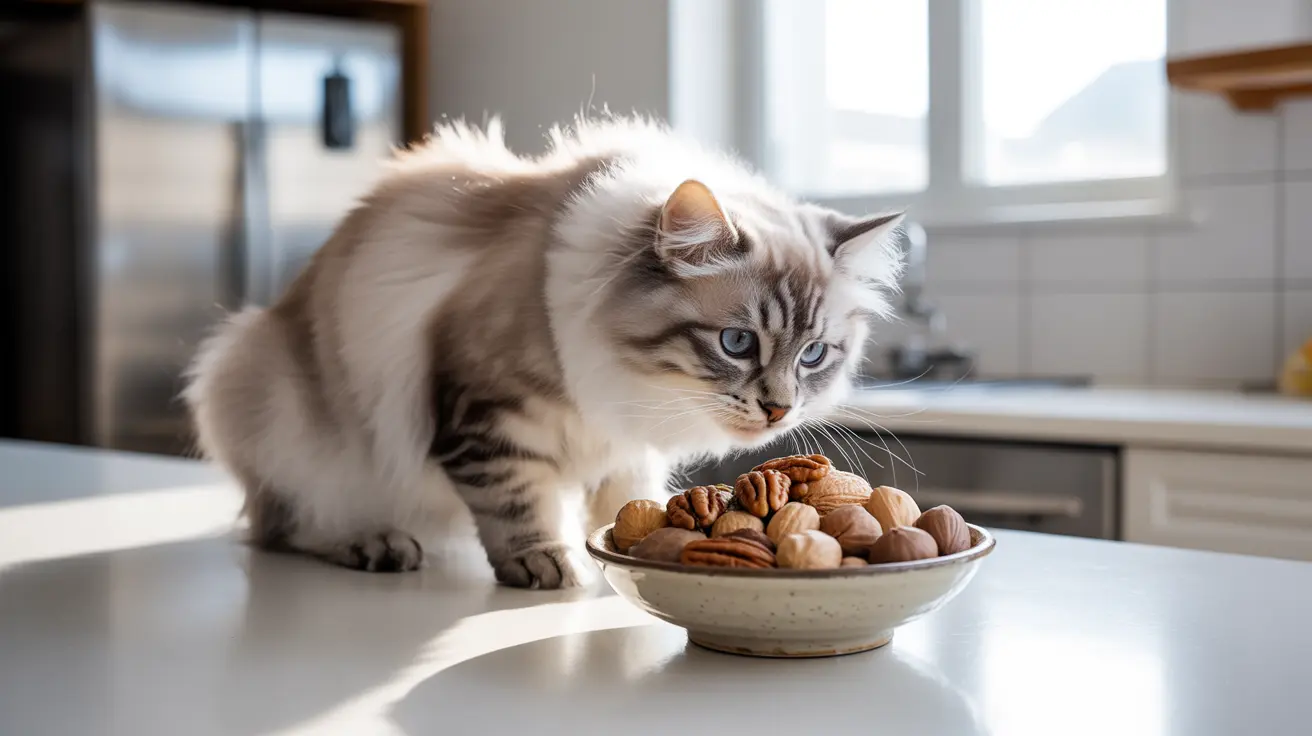As cat owners, we often wonder about sharing our favorite snacks with our feline friends. When it comes to nuts, many pet parents ask whether these protein-packed morsels are safe for their cats. Let's explore the comprehensive answer to whether cats can have nuts and what risks these common foods might pose to our feline companions.
While most nuts aren't immediately toxic to cats (with some notable exceptions), they're generally not recommended as part of a feline diet. As obligate carnivores, cats have specific nutritional needs that nuts simply don't fulfill, and these crunchy snacks can actually pose several health risks.
Understanding Why Nuts Aren't Ideal for Cats
Cats are natural meat-eaters whose digestive systems are designed to process animal proteins rather than plant-based foods. Their bodies lack certain enzymes needed to properly digest nuts, making these foods potentially problematic for several reasons:
- High fat content that can lead to pancreatitis
- Risk of choking or intestinal blockage
- Limited nutritional value for cats
- Potential for digestive upset
Common Nuts and Their Risks to Cats
Macadamia Nuts: The Most Dangerous Option
Among all nuts, macadamia nuts stand out as particularly hazardous to cats. These nuts are toxic to felines and can cause serious symptoms including:
- Weakness and lethargy
- Vomiting
- Hyperthermia
- Muscle tremors
- Depression
Other Common Nuts and Their Effects
While not typically toxic, other nuts present their own set of risks:
- Almonds: Can cause digestive issues and pose choking hazards
- Cashews: High fat content may lead to pancreatitis
- Peanuts: Risk of salt toxicity if salted; choking hazard
- Walnuts: Potential for mold toxins; difficult to digest
Special Considerations for Nut Products
Nut butters and processed nut products pose additional risks to cats. Many peanut butter brands contain xylitol, an artificial sweetener that's highly toxic to pets. Additionally, salted or seasoned nuts can expose cats to dangerous levels of sodium or harmful spices.
Signs Your Cat Has Eaten Nuts
If your cat manages to consume nuts, watch for these symptoms:
- Vomiting or diarrhea
- Lethargy
- Loss of appetite
- Abdominal pain
- Difficulty passing stool
- Excessive thirst
Safe Alternatives to Nuts for Cats
Instead of nuts, consider these cat-appropriate treats:
- Commercial cat treats formulated for felines
- Small pieces of cooked lean meat
- Freeze-dried meat treats
- Cat-specific dental treats
Frequently Asked Questions
Can cats safely eat nuts like almonds, cashews, or peanuts?
No, while these nuts aren't toxic, they're not safe for cats due to their high fat content, choking risk, and potential to cause digestive issues.
Why are macadamia nuts toxic to cats and what symptoms should I watch for?
Macadamia nuts contain compounds toxic to cats that can cause weakness, vomiting, hyperthermia, and muscle tremors. If your cat eats macadamia nuts, seek immediate veterinary care.
What are the health risks of feeding nuts to cats, including choking and digestive issues?
The main risks include choking, intestinal blockage, pancreatitis from high fat content, and general digestive upset including vomiting and diarrhea.
Are nut butters, such as peanut butter, safe for cats or do they contain harmful ingredients?
Nut butters are not safe for cats. Many contain xylitol (highly toxic to pets), and their thick consistency can be a choking hazard. They're also too high in fat for feline consumption.
What should I do if my cat accidentally eats nuts or shows signs of illness after ingestion?
Monitor your cat closely for symptoms like vomiting, lethargy, or difficulty breathing. If your cat ate macadamia nuts or shows any concerning symptoms, contact your veterinarian immediately.
Remember, while cats might show interest in nuts, it's best to keep these snacks for human consumption only. Focus on providing your cat with a balanced, species-appropriate diet that meets their unique nutritional needs.






